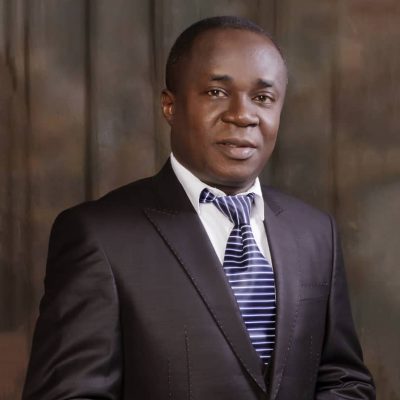By Tony Obiechina Abuja
Finance and Capital Market Professor, Uche Uwaleke has advocated the establishment of Federal Scholarship Board that will serve only brilliant indigent students who have gained admission to study ‘Pillar courses’ in public tertiary institutions instead of a general loan scheme being proposed.
Uwaleke spoke against the backdrop of the Student Loan Bill, recently signed into law by President Bola Tinubu.
The bill sponsored by the Speaker of the 9th House of Representatives, Femi Gbajabiamila and passed into law two weeks ago, provides for interest-free loans to indigent Nigerian students.
But reacting to the development, the Capital market expert said instead of the Federal Loan Scheme being contemplated, the government should thinker with the idea of a Federal Scholarship Board which according to him will serve a better purpose.
In a statement made available to PROMPT NEWS in Abuja, the Nasarawa State University don said, “I think federal ‘scholarship board’ as opposed to ‘loan scheme’ stands to serve the purpose better.
According to him, “the difference is that the scholarship will only be given to brilliant indigent students who are motivated to achieve high grades in school knowing full well that the scholarship is tied to their academic performance”.
Continuing, Uwaleke stated, “On the contrary, student loans are not a function of school grades. As a matter of fact, a loan scheme operating via an edubank is prone to abuse especially by politicians who are likely to see that as another ‘constituency project’ to empower as many beneficiaries as possible. If previous experience is anything to go by, many of the beneficiaries will see it as free money.
“My idea of a federal scholarship board is a departure from what currently obtains. In view of the country’s current difficult fiscal state, It is one in which the beneficiaries will only be brilliant indigent students who have gained admission to study what I refer to as ‘Pillar courses’ in public tertiary institutions.
“These pillar courses, determined by the Ministries of Education and National Planning, are those that have direct bearing to our developmental needs such as Agric Science, Engineering, ICT, Medicine and Education in the first instance.
“There’s no gainsaying the fact that the government needs to accord priorities to certain educational programmes in view of scarce resources. Education Bank is a good concept but the big question is: how feasible is it in today’s Nigeria?
“I have my doubts regarding the success of the student loan scheme unless certain preconditions are met. With high unemployment rate in the country, it is difficult to see how the student loans will be repaid. Having been through this route before, it’s important the cart is not put before the horse
“I think a federal ‘scholarship board’ as opposed to ‘loan scheme’ stands to serve the purpose better.
“The difference is that the scholarship will only be given to brilliant indigent students who are motivated to achieve high grades in school knowing full well that the scholarship is tied to their academic performance.
“On the contrary, student loans are not a function of school grades. As a matter of fact, a loan scheme operating via an edubank is prone to abuse especially by politicians who are likely to see that as another ‘constituency project’ to empower as many beneficiaries as possible. If previous experience is anything to go by, many of the beneficiaries will see it as free money.
“My idea of a fed scholarship board is a departure from what currently obtains. In view of the country’s current difficult fiscal state, It is one in which the beneficiaries will only be brilliant indigent students who have gained admission to study what I refer to as ‘Pillar courses’ in public tertiary institutions.
“These pillar courses, determined by the Ministries of Education and National Planning, are those that have direct bearing to our developmental needs such as Agric Science, Engineering, ICT, Medicine and Education in the first instance.
“There’s no gainsaying the fact that the government needs to accord priorities to certain educational programmes in view of scarce resources”.


